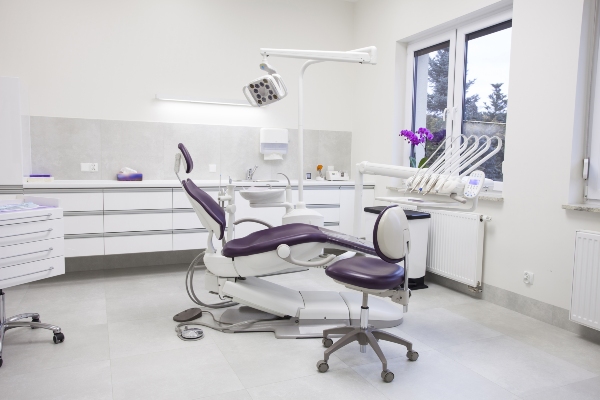The People that General Dentists Say Make the Right Candidates for Dental Implants

It is not uncommon for general dentists to recommend dental implants over dentures, as dental implants are a more reliable, effective and all-around better tooth replacement option. However, not all patients are good candidates for dental implants. Learn more about the type of people generalists recommend for the advanced procedure.
Why general dentists recommend implants over dentures
A dental implant is an artificial tooth root that is placed in a patient's jaw to hold the artificial tooth cap, or abutment, in place. Dental implants are the most superior tooth replacement option as, unlike dentures, bridges and other solutions, implants are made to last for life. Moreover, implants are designed to look and function just like natural teeth, which has several benefits in and of itself, including the following:
- Improved speech
- Increased comfort and function
- Improved appearance
- Better oral health
- Convenience
- Durability and longevity
General dentists will typically recommend dental implants when a patient has lost a tooth due to injury or periodontal disease.
The ideal candidate for dental implants
Though dental implants are the favored tooth replacement option, not every patient is a viable candidate. Eligible candidates possess a few key traits.
Missing teeth
The most obvious factor dentists consider before recommending a person for dental implants is tooth loss. If a person is missing one or more teeth, a family dentist is more likely to assess the patient's candidacy for implants before they even consider dentures or bridges.
Sufficient bone density
Implants need sufficient bone density to support the titanium rod that makes up the dental implant. If a patient does not have good bone density, it is unlikely the dentist will make an implant recommendation.
Strong gums
Similar to why sufficient bone density is so important, implants require strong, healthy gums to be successful. A patient who has a chronic case of gum disease or receding gums is not a strong candidate for the dental implant procedure.
Strong oral health
Though many patients who require dental implants do so because of poor oral health, dental health is one factor general dentists consider before making a dental implant recommendation. For implants to be successful, a patient must adhere to a strict oral hygiene routine and take measures to prevent additional problems from creeping up.
Patience
Dental implants cannot be implanted in a single day. In fact, most procedures take months to complete from start to finish, while some cases require an entire year. The ideal candidate is a person who has the patience necessary to adhere to doctor's orders for the duration of the treatment process.
Additional Factors
There are numerous other factors that may render a person ineligible for dental implants. For instance, heavy smokers and habitual alcohol drinkers may not be good candidates, as both nicotine and alcohol hinder the body's ability to heal. Patients who live with certain chronic health conditions such as hemophilia and uncontrollable diabetes are also not a good fit for the procedure. If a woman is pregnant, it is unlikely a cosmetic dentist will allow her to undergo treatment.
Conclusion
Dental implants come with several benefits, which is why general dentists often recommend the treatment option. If you are interested in implants, discuss possible eligibility with your dentist today.
Request an appointment here: https://www.newyorkdentaloffice.com or call New York Dental Office at (212) 548-3261 for an appointment in our New York office.
Check out what others are saying about our services on Yelp: Read our Yelp reviews.
Recent Posts
Scheduling an initial visit to a dental practice marks the first step toward maintaining optimal oral health. Proper preparation for this appointment ensures a seamless experience, allowing the dental team to provide the highest-quality care possible. Understanding what documents and information to bring facilitates efficient care, reduces stress, and helps patients feel comfortable and informed…
Dental practices provide essential oral health services to patients of all ages. These services range from preventive and restorative treatments to cosmetic and emergency procedures. Understanding the types of care available at a general dental practice can help patients make informed decisions about their oral and overall health.Preventive care is a cornerstone of dental practice…
Regular visits to a dental practice provide essential care for achieving and maintaining optimal oral health throughout a patient’s lifetime. Beyond treating immediate dental concerns, a dental practice emphasizes preventive care, patient education, and tailored treatments designed to safeguard oral health for years to come. Understanding the role of professional dental care underscores the importance…
Endodontics is a branch of dentistry dedicated to saving teeth by treating problems inside the tooth. It focuses on the health of the tooth's pulp and roots, essential to your smile's overall strength and function. Endodontics could be the key to relieving discomfort and preserving your natural teeth if you are experiencing tooth pain or…



